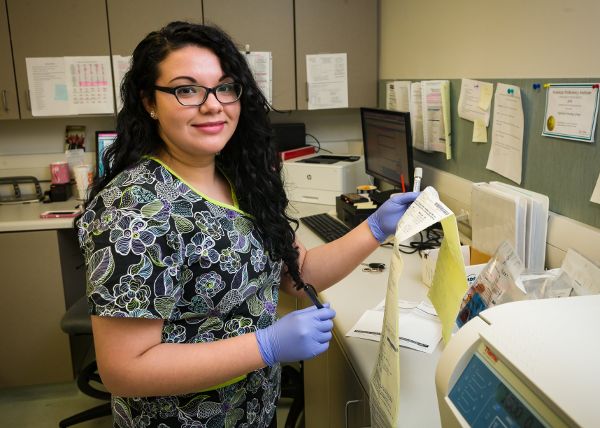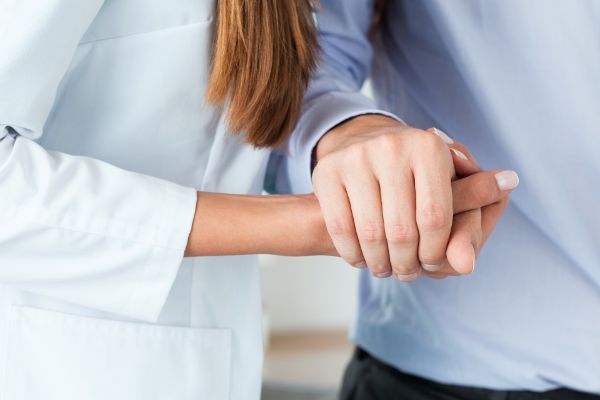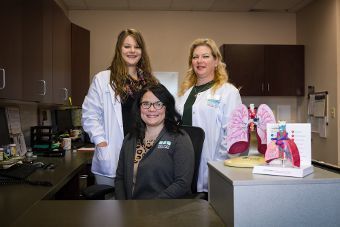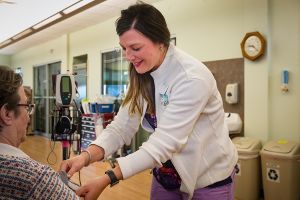
Our goal is to continue to provide you with a safe environment here at Highlands Oncology. In order to accomplish this, here are the steps we are taking to protect you:
1. Increased cleaning and sanitizing throughout the day and after-hours
2. Visitor restrictions
We are currently allowing one visitor to accompany the patient inside the clinic for all appointments except those in our chemotherapy suite. If you are receiving an infusion of any kind, only patients will be allowed inside that suite.
3. Encouraging social distancing in our lobbies and treatment rooms
4. Increased our number of Triage Nurses to address your COVID-19 questions and concerns
5. Some staff members are working remotely, reducing the number of staff in the clinic
6. Telemedicine visits
Highlands Oncology is following CDC guidelines regarding the protective equipment our staff should be wearing. Staff members who work in close proximity to patients are wearing masks. You may see different types and brands of masks. This is due to the availability of masks and the purpose that it serves.
If you have been to a city, state or country where a community spread outbreak of the Coronavirus has been reported, please contact your medical provider.
Visit www.cdc.gov periodically to stay up-to-date on Coronavirus information.

What you need to know about the Coronavirus (COVID-19)
The Coronavirus disease is a respiratory illness that can spread from person to person. The virus that causes COVID-19 is a novel coronavirus that was first identified during an investigation into an outbreak in Wuhun, China. It is currently spreading through many countries, including the United States. If you have been to a city, state or country where a community spread outbreak of the Coonavirus has been reported, please contact your medical provider.
https://www.cdc.gov/coronavirus/2019-ncov/downloads/2019-ncov-factsheet.pdf
What are the symptoms?
Symptoms of COVID-19 have been reported from mild to severe illness and may appear 2-14 days after exposure has occurred. You can help stop the spread of this disease by knowing the signs and symptoms.
- Fever
- Cough
- New onset of Shortness of Breath
https://www.cdc.gov/coronavirus/2019-ncov/about/symptoms.html
How is it spread?
The virus is mainly thought to be spread from person to person:
- Between people who are in close contact with one another
- Through respiratory droplets produced when an infected person coughs or sneezes
- Possibly through touching a surface or object that has been touched by an infected person
https://www.cdc.gov/coronavirus/2019-ncov/about/transmission.html
Prevention
- There is currently no vaccine to prevent COVID-19. The best way to prevent illness is to avoid exposure to the virus. The CDC recommends these everyday preventative actions:
- Wash your hands often with soap and water for at least 20 seconds
- Cover your cough or sneeze with a tissue, then throw that away
- Avoid touching your eyes, nose and mouth
- Avoid close contact with people who are sick
- Stay home when you are sick
- Clean and disinfect frequently touched objects and surfaces
https://www.cdc.gov/coronavirus/2019-ncov/about/prevention-treatment.html







